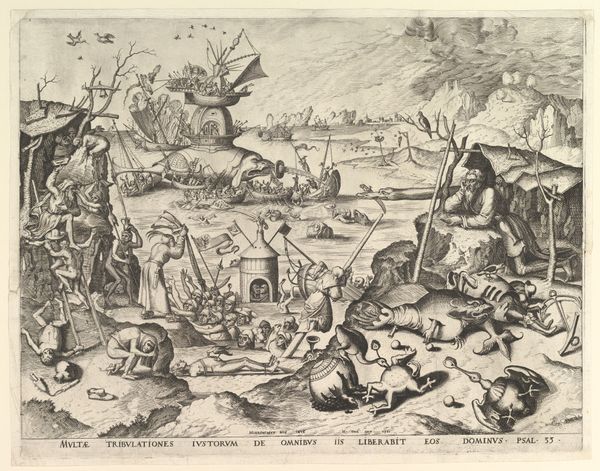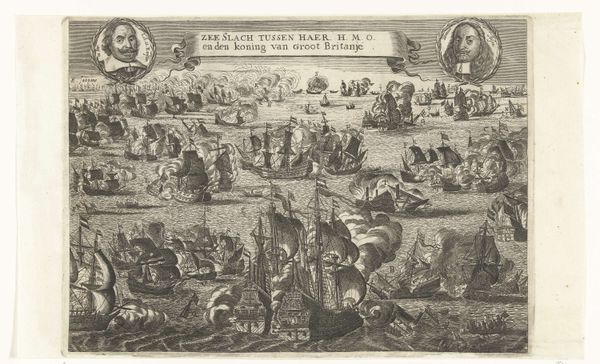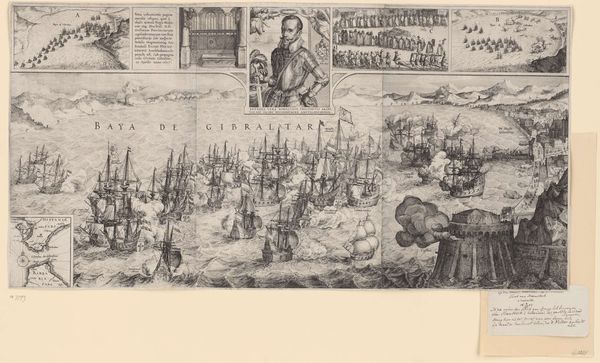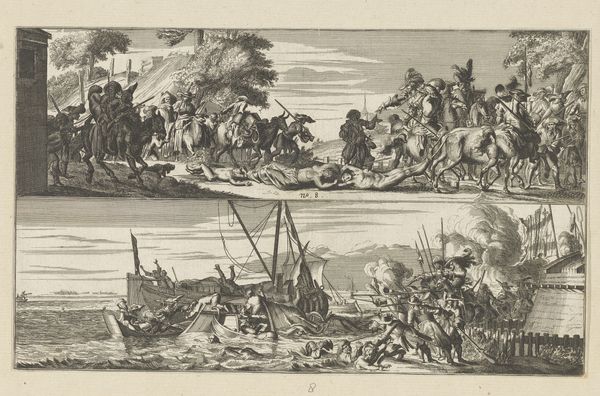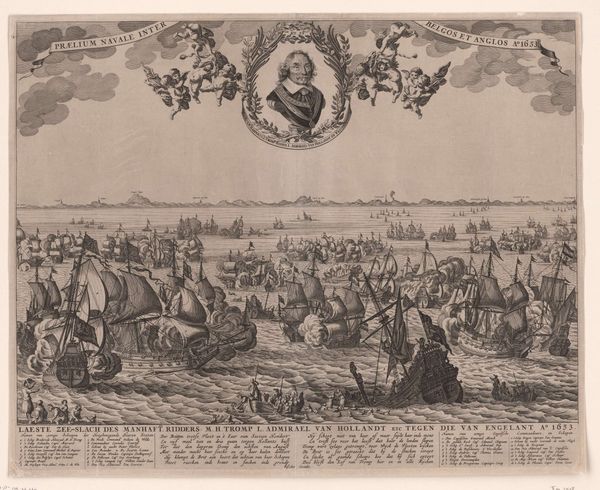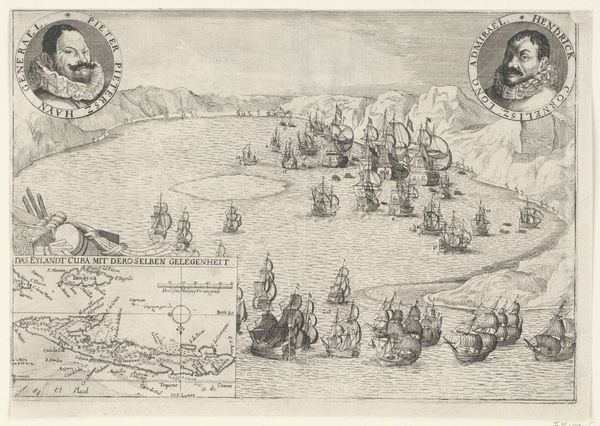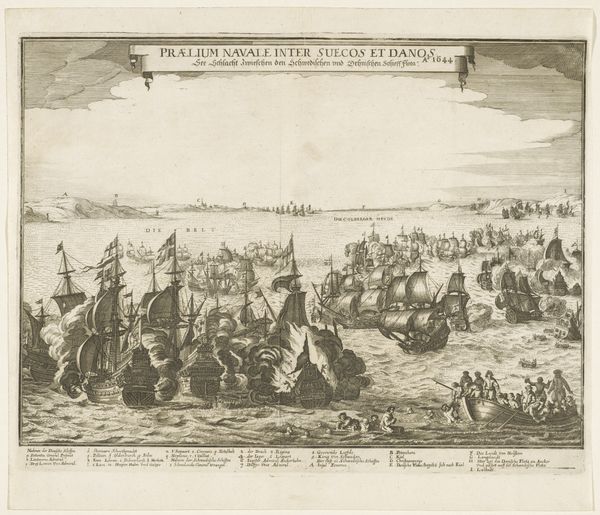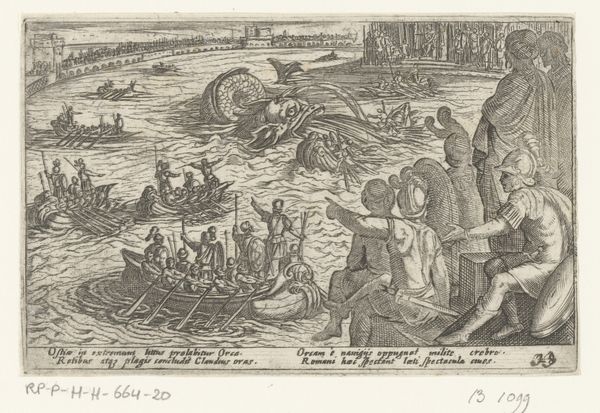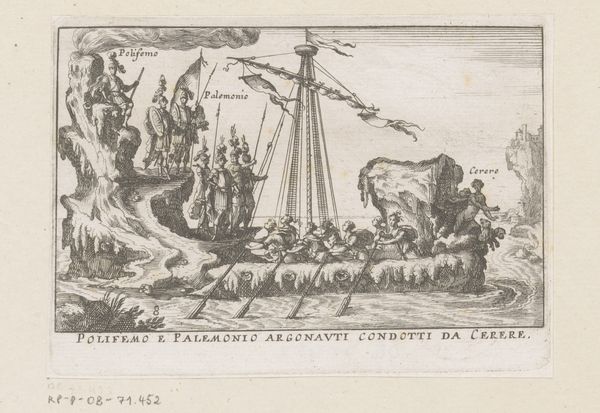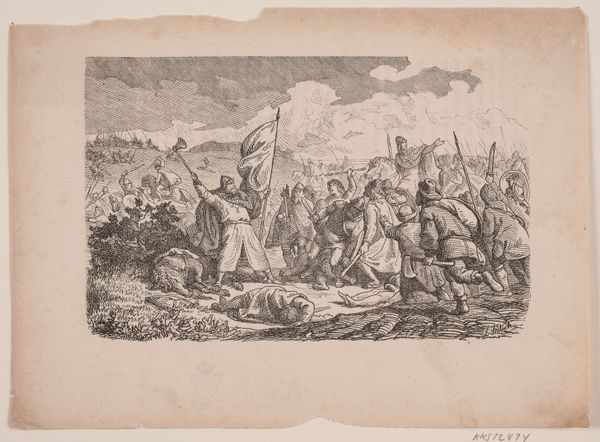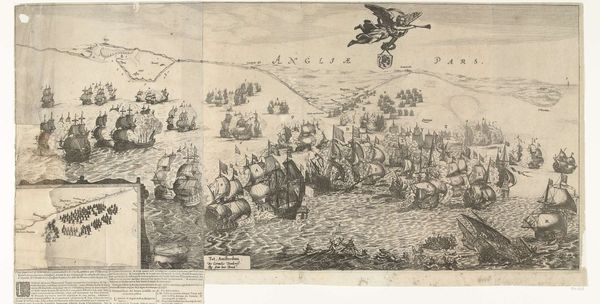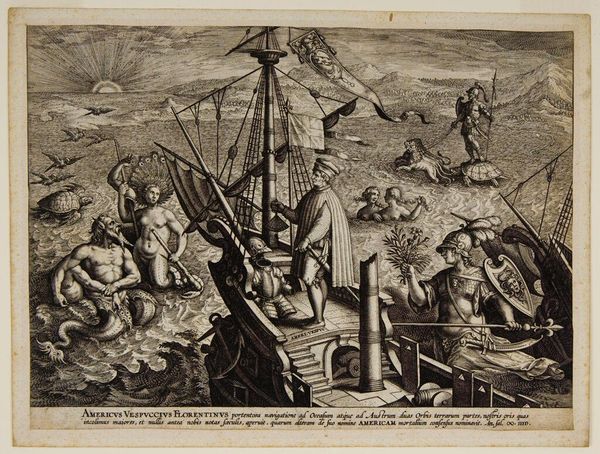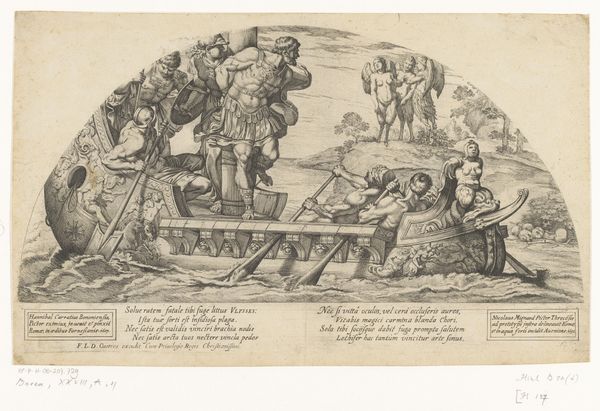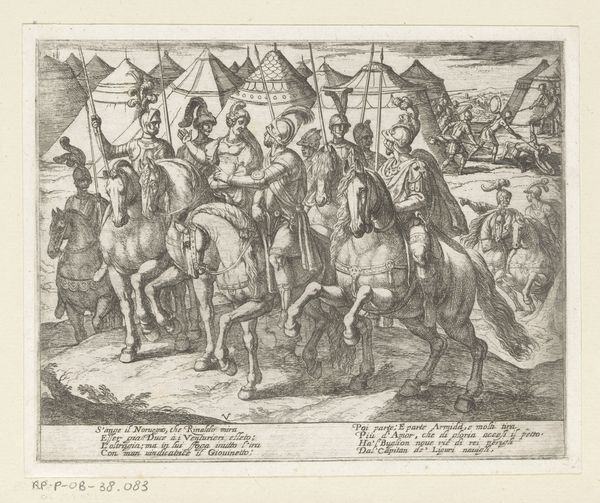
#
pencil drawn
#
light pencil work
#
pen sketch
#
pencil sketch
#
old engraving style
#
personal sketchbook
#
ink drawing experimentation
#
pen-ink sketch
#
sketchbook drawing
#
pencil work
Dimensions: height 491 mm, width 738 mm
Copyright: Rijks Museum: Open Domain
Editor: We're looking at "Triumph of Michiel de Ruyter," made around 1667 by Salomon Savery. It's currently housed at the Rijksmuseum. The piece is incredibly detailed; I find it overwhelming, but in a good way! It's so busy with tiny scenes surrounding what appears to be the central figure. What jumps out at you initially? Curator: I appreciate your astute observation of detail. Let us focus first on the composition. Notice how the artist employs a hierarchical arrangement, positioning Michiel de Ruyter centrally, elevated upon a triumphal chariot. The surrounding vignettes, depicting naval battles, function as supporting narratives, enhancing the central figure's heroic status. Consider how the engraving technique itself—the density and fineness of the lines—contributes to the overall sense of controlled exuberance. Do you perceive a clear focal point within the overall busyness, or do you find the details compete for attention? Editor: I think de Ruyter in the chariot is definitely the focus, but my eye also goes to the vignettes. Is that intentional, to show all of his victories, or does it distract from his individual heroism? Curator: Precisely. The artist’s intention appears twofold. The centralized figure commands primary attention by scale and positioning. At the same time the surrounding vignettes contribute to an understanding of his full history as a naval commander. Examine how the linear quality in each smaller scene creates a unified, complex overall effect, that is both decorative and informative. The piece itself serves almost as a heroic visual index. How does the stark monochromatic nature of the medium itself effect the feeling and impact on the modern viewer, if at all? Editor: It gives it a historical feeling. Looking at the printmaking technique more closely makes me understand how those repeated lines create something new entirely! Curator: Precisely. I, too, find that the semiotic reading of the individual symbols adds much more when juxtaposed. A piece to ponder in detail indeed!
Comments
No comments
Be the first to comment and join the conversation on the ultimate creative platform.
